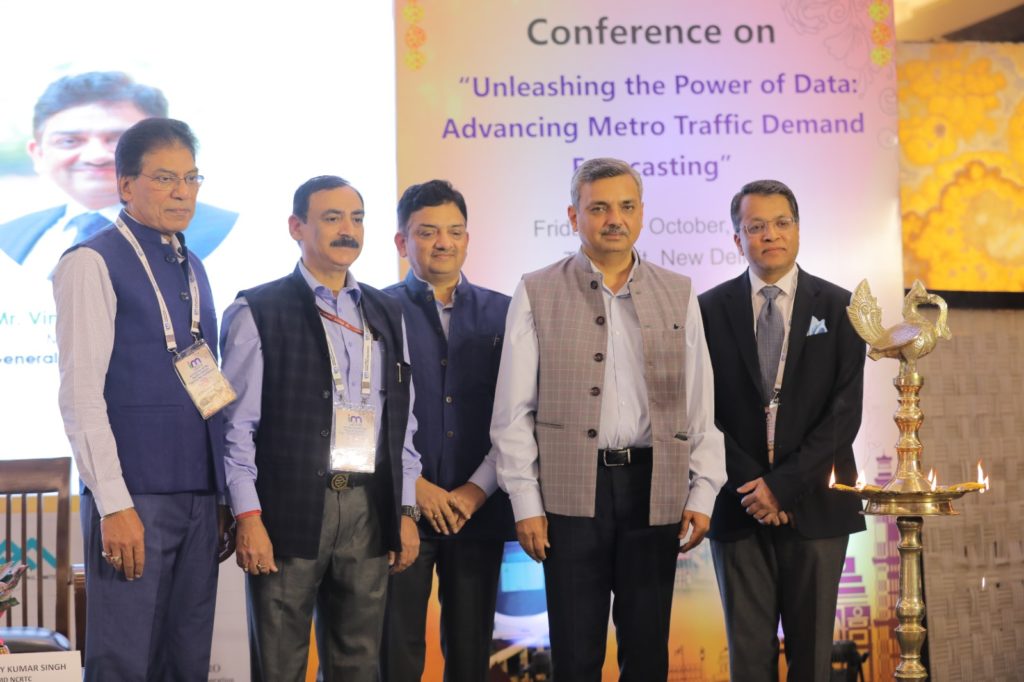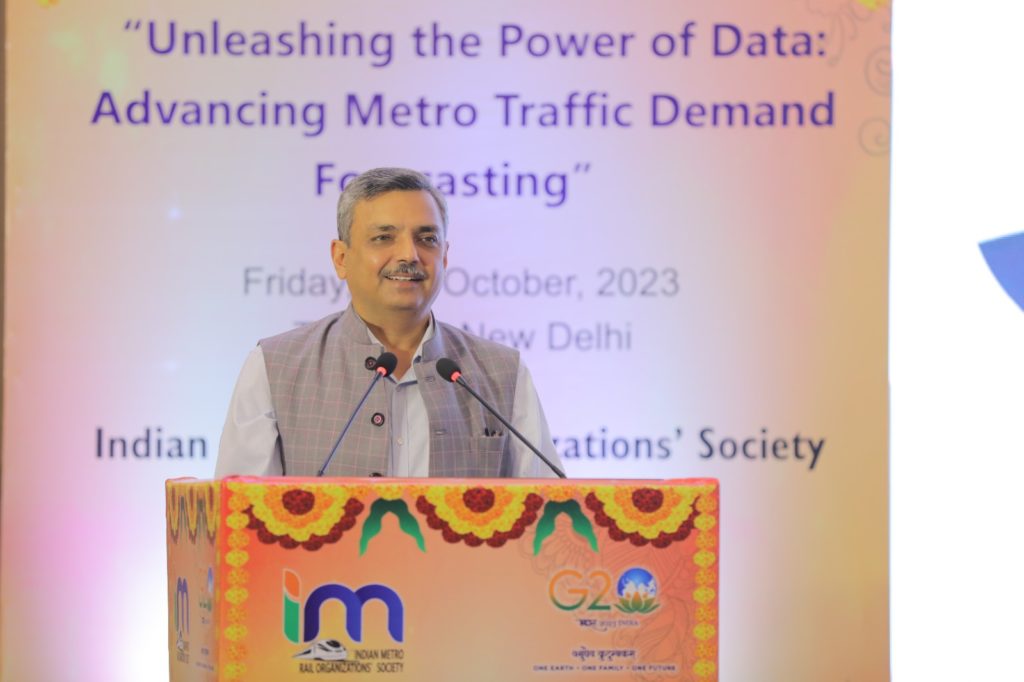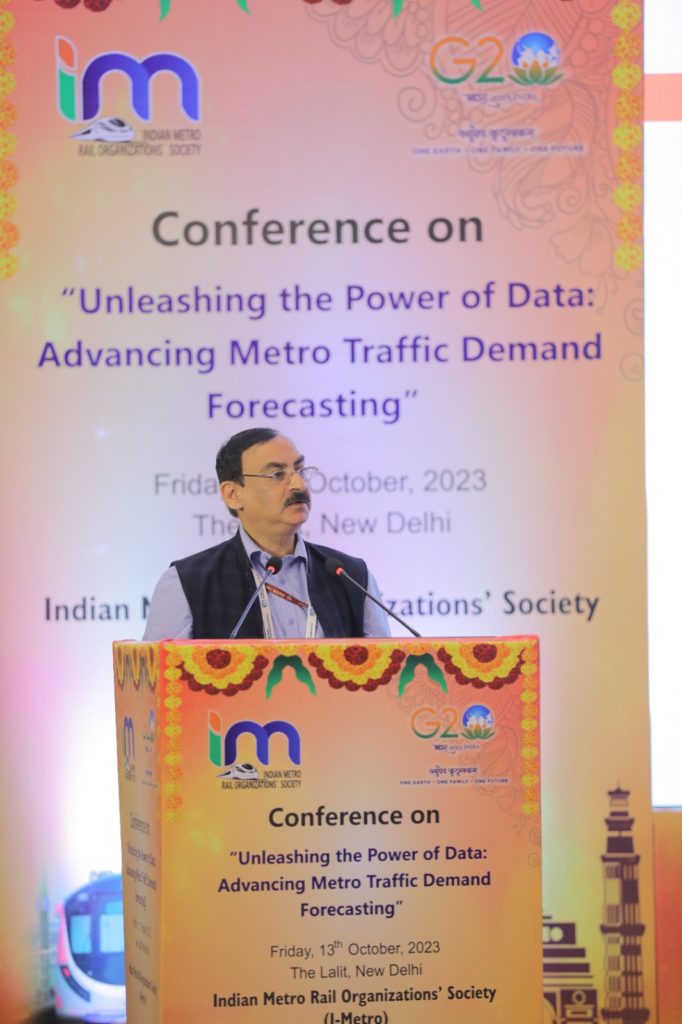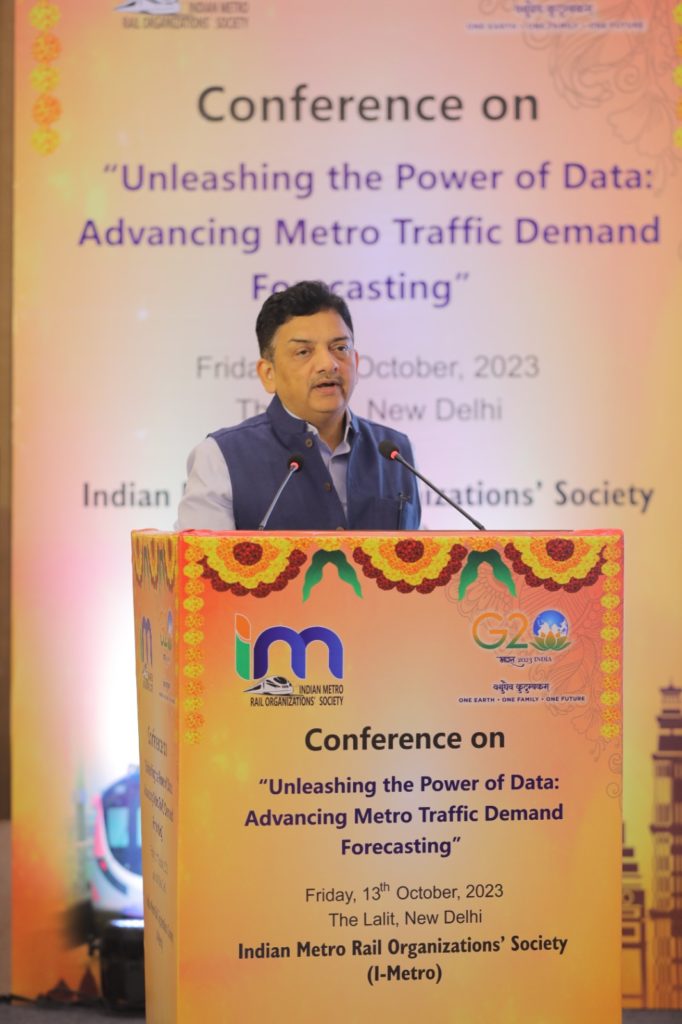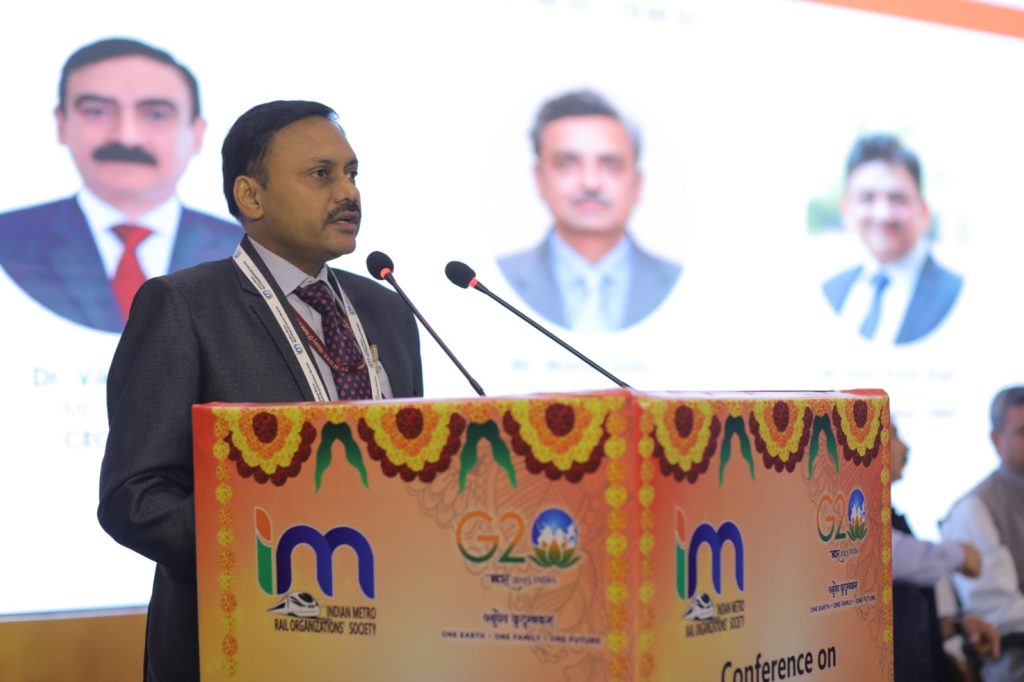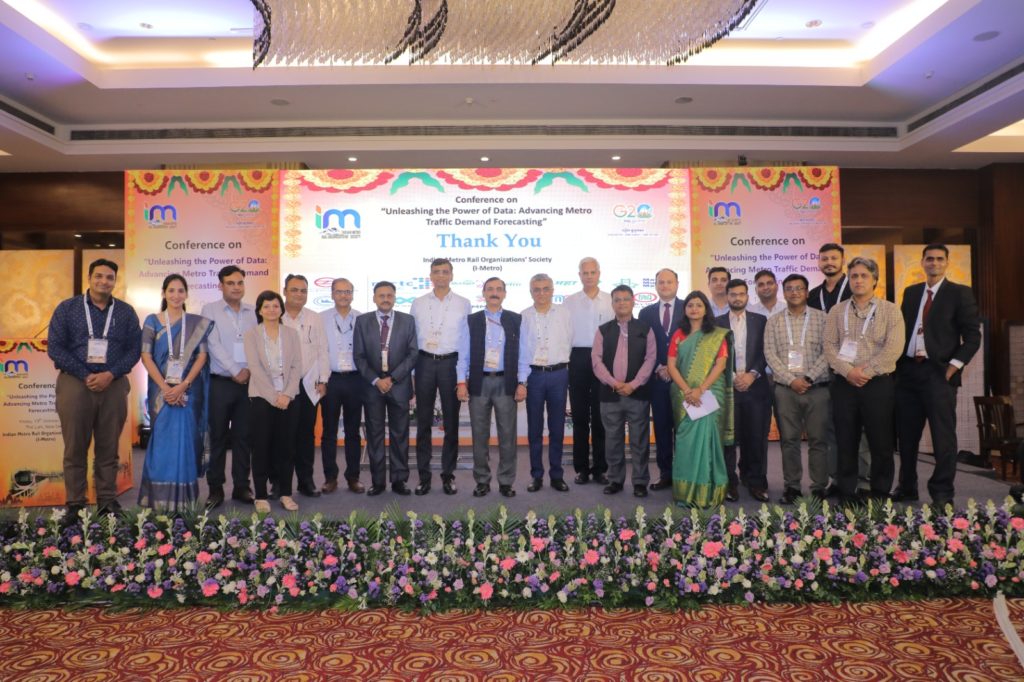Indian Metro Rail Organizations’ Society (I-Metro) organised a conference on “Unleashing the power of data: Advancing Metro Traffic Demand Forecasting” on 13th October, 2023 in The Lalit Hotel, New Delhi. The aim of the conference was to learn about the various approaches used for passenger demand forecasting around the world and to improve the accuracy of the process that is being used in India.
The conference was organised under the competent & futuristic leadership of Sh. Manoj Joshi Secretary (HUA), Ministry of Housing and Urban Affairs. Dr. Vikas Kumar, Managing Director DMRC & Vice President and CEO I-Metro, Sh. Vinay Kumar Singh, Managing Director NCRTC & General Secretary I-Metro graced the event along with Managing Directors & Senior Officials of other metros of India, Academicians, Researchers, etc. A total of 120 participants attended the conference. Eminent national and international speakers shared their insight on the topic making the conference very informative and setting the tone to adopt the cutting-edge technology in predicting the passenger demand more accurately. Following speakers shared the stage:
- Alex Phillips – Rail Development Manager/ Transport For London
Topic – Forecasting demand on London’s Newest Railway, The Elizabeth Line
- Saeid Saidi - Assistant Professor, University of Calgary, Canada
Topic - Advancement in Data Analysis and its use in deciding Alignment e.g., Circular or Radial
- Zhenliang Ma - Assistant Professor, KTH University Stockholm
Topic - Deconstructing Data and AI for Passenger Demand Forecasting in Metro Rail System
- Jaison Paul Mulerikkal – Vice Principal, Rajagiri School of Engineering & Technology, Kochi, India.
Topic – JP-DAP: An Intelligent Data Analytical Platform for Demand Forecasting and Future Trend Prediction of Metro Rail Systems
- Niels Van Oort - Associate Professor, Delft University and Co-director, Smart Public Transport Lab, Netherlands
Topic - Innovations in Public Transport Demand Forecasting
- Asit Kadayan - Deputy Director General, DoT
Topic - Mobile Insight Fusion: Unleashing the Mobile Network Capabilities for Intelligent Transport Planning.
- Shagun Mittal - Research Assistant, Purdue University, USA
Topic - Accurate and Granular Passenger Demand Assessment for Effective Transportation Planning.
- Luis Willumsen- Director, Nommon Solutions and Technologies, UK
Topic - The Contribution of Big Data and Machine Learning to Transport.
- Shalini Sinha - Sr. Associate Professor, CEPT University, Ahmedabad
Topic - Demand Forecasting for Rapid Transit Feasibility in Indian Cities - Challenges and Opportunities
- Sean Z. Qian - Professor, Carnegie Mellon University, USA
Topic - Predicting Transit Ridership through Data-Driven Large-Scale Dynamic Network Modelling.
- Gitakrishnan Ramadurai - Professor, IIT Madras
Topic - Combined Supply - Demand Modelling and Leveraging Big Data to Improve Accuracy
Transport experts from UITP, SPA Delhi, IIIT Delhi & DMRC lent their expertise in the conference as session moderators ensuring that the event went through its course smoothly.
Such a conference gains utmost importance in the light of the fact that a rail-based Mass Rapid Transport System (MRTS) project involves huge financing and to make it sustainable for all stakeholders an accurate projection of estimated passenger demand becomes more desirable. Such accuracy in projections of future passenger demand is also essential for optimization in allocation of valuable resources.
The conference is seen not as an end but a beginning – a beginning that would make more accurate future ridership projection by member metros possible in days to come and also help the upcoming rail based MRT systems to judge their financial viability at the initial stages. Such a beginning has laid a firm foundation for more such discussions and knowledge sharing sessions that will further empower the metro systems across India to design and operate successfully without being dependent on government subsidies.
